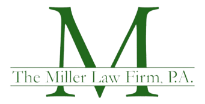CLU (Coronavirus Legal Update for March 27, 2020: How the CARES Act Can Help Small Businesses)

On March 27, Congress passed the Coronavirus Aid, Relief, and Economic Security Act (also known as the “CARES Act”). The purpose of the Act, as stated, is to “[p]rovid[e] emergency assistance and health care response for individuals, families and businesses affected by the 2020 coronavirus pandemic.” This monumental, $2-billion-dollar stimulus package, is the largest disaster relief package in U.S. history and has provisions which will have a large-scale impact on businesses and individuals alike. For small businesses, Title I of the Act, named the “Keeping American Workers Paid and Employed Act,” is vitally important as it provides crucial avenues whereby small businesses can seek low-interest, and partially forgivable federal loans to help ease the tensions brought on by this pandemic.
Under this section of the CARES Act, during the “covered period” – which is February 15, 2020 through June 30, 2020 – small businesses, non-profit organizations, veterans organizations, or Tribal businesses are eligible for a “paycheck protection loan” if : (1) the business employs not more than 500 employees; or (2) if applicable, the business has the size standard in number of employees established by the Small Business Administration for the industry in which the business, non-profit, veterans organization, or Tribal business operates. Importantly, too, individuals who operate under a sole-proprietorship, as an independent contractor, or as “eligible self-employed individuals” are also eligible to receive a loan under the CARES Act. However sole-proprietors, independent contractors, and self-employed individuals must submit documentation, such as payroll tax filings reported on 1099-MISC, and income and expenses, to be eligible. Additionally, “[a]ny business [] that employs not more than 500 people per physical location of the business [] and that is assigned a North American Industry Classification System code beginning with 72 at the time of dispersal [of the loan] shall be eligible to receive a [] loan.”
Looking at the provisions of the CARES Act, it becomes clear that Congress specifically designed this law to be wide in its availability. Whether a small business with one or multiple locations, non-profit, veteran’s organization, sole-proprietor, independent contractor, or self-employed, there is potential to receive a loan under this Act. If a business meets the minimum requirements for eligibility, the question then becomes, how much can the business receive? Per the Act, the maximum loan amount is the lesser of the sum of the product obtained by multiplying the average total monthly payments made for payroll costs during the 1-year period before the date on which the loan is made, by 2.5; and the sum of the outstanding amount of a preexisting SBA loan which was made during the period beginning on January 31, 2020 and ending on the date on which a covered loan (meaning loans made during the “covered period,” as described above) are made to be refinanced under the covered loan. Under the above scenario, for seasonal employers, the number is the average total monthly payments for the twelve-week period beginning February 15, 2019, or at the election of the applicant, beginning March 1, 2019 and ending June 30, 2019, multiplied by 2.5. If the requesting business was not operating from February 15, 2019 through June 30, 2019, the maximum loan amount is the product of the average total monthly payments for payroll costs incurred during the period beginning on January 1, 2020 and ending on February 29, 2020, by 2.5. Alternatively, no loan given under this Act can exceed $10,000,000.
Next, if you are eligible for a loan and do, in fact, receive the loan, what can the loan be used for? Under the Act, the allowable uses for a covered loan are: payroll costs; costs related to the continuation of group health care benefits during periods of paid sick leave, medical, or family leave, and insurance premiums; employee salaries, commissions, or similar compensations; payment of interest on any mortgage obligation; rent; utilities; and interest on any other debt obligations that were incurred before the “covered period.” Interestingly, the loan cannot be applied towards pre-payments or payments of principal on an existing mortgage. Interestingly, also, there is no requirement that the applicant submit his or herself to a personal guarantee for the loan, or submit any collateral to obtain the loan. However, in order to be eligible, an applicant for a loan under this section must make a “good faith certification – (I) that the uncertainty of current economic conditions makes necessary the loan request to support the ongoing operations of the [] recipient; (II) acknowledging that funds will be used to retain workers and maintain payroll or make mortgage payments, lease payments, and utility payments; (III) that the [] recipient does not have an application pending for a loan under this subsection for the same purpose and duplicative of amounts applied for or received under a covered loan; and (IV) during the period beginning on February 15, 2020 and ending on December 31, 2020, that the [] recipient has not received amounts under this subsection for the same purpose and duplicative of amounts applied for or received under a covered loan.”
A great benefit of these loans, in addition to interest rates not to exceed four percent (4%), is their eligibility for at least partial forgiveness. A business receiving a “covered loan” is eligible to have the indebtedness on a “covered loan” forgiven in an amount equal to the costs of payroll, payments made on interest of mortgage obligations, payment of rent, and payment of utilities, so long as those payments were made during the “covered period.” However, there are limitations on the amount forgiven and the amount forgiven can be reduced in the event of layoffs and/or salary reductions in excess of twenty-five percent (25%). Additionally, those seeking loan forgiveness need to submit the following to the lender servicing the loan: (1) documentation verifying the number of full-time employees on payroll and pay rates during the covered period; (2) documentation, including cancelled checks, payment receipts, transcripts of accounts, or other documents verifying payments on covered mortgages, payments on covered leases, and covered utilities; (3) a certification from a representative of the business stating that the information submitted is true and correct and that the amount of forgiveness requested was used for the purposes eligible for forgiveness; and (4) any other documentation the Administrator determines necessary.
Lastly, under the Act, a small business can apply to the SBA for a “Emergency EIDL Grant.” From January 31, 2020 through December 31, 2020, small businesses and other entities eligible, who apply for loans under the Act, can request that the SBA provide an advance on the loan requested. This advance cannot exceed $10,000, and can be used to provide paid sick leave to employees unable to work due to the direct effect of the coronavirus; maintain payroll to retain employees during business disruptions or substantial slowdowns; meet increased costs to obtain materials unavailable due to interrupted supply chains; make rent or mortgage payments; and repay obligations that cannot be met due to revenue losses. While this amount functions as a grant (in that it does not need to be repaid) even if the business is denied a loan under the Act, if the business is approved for a “covered loan,” the amount of the advance will be reduced from any loan forgiveness requested by the business on the “covered loan.”
The unique situation brought on by the COVID-19 pandemic has changed the lives of every person in the United States. It has also made times difficult and lean for many small businesses around the country. In these hard times, it is important for small businesses to be in a position where they are not forced to go out of business. This is important not only for the U.S. economy, but also, and perhaps more vital, for the communities in which these small businesses operate. The steps taken by Congress with the passing of the CARES Act, and the resources allocated through it, provide a foundation for the survival of the small business and an avenue through these troubled times. David Schlosser (david@themillerlawfirmpa.flywheelsites.com) is an attorney with The Miller Law Firm, P.A. Please give us a call if you have any questions about the CARES Act or to schedule a small business consultation (The Miller Law Firm, P.A. – 864-527-0413.)
Categories
Recent Blog Posts
start here
Get In Touch
Tell Us a Little More About Your Case



Comments